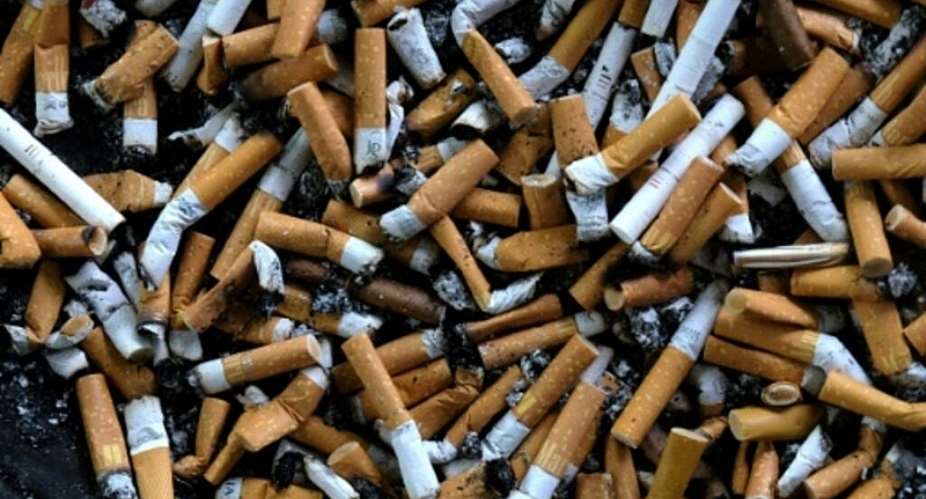A report published Thursday has lit a fire under the tobacco industry, which it accuses of causing widespread environmental harm while greenwashing its products and practices in order to mask the real damage.
A collaboration between the World Health Organization and global tobacco watchdog STOP, the report warns that carbon emissions by the tobacco industry are comparable to those of a large oil company – accounting for more than 80 million tonnes of CO2 released into the atmosphere per year.
Tobacco researcher and report author Andy Rowell told RFI that every step of tobacco production impacts the environment, from cultivation, curing, processing, manufacturing and distribution – not to mention deforestation.
“Six hundred million trees are cut down every year to make 6 trillion cigarettes,” Rowell said, adding that waste pollution from cigarette butts, the most littered item on earth, is to enough to fill two White Houses within a week.
“This is an industry that kills one in two long-term smokers, but it's also killing the planet.”
'Spin campaigns'
The report comes two weeks ahead of World No Tobacco Day, on 31 May, which this year aims to call out the industry over its public relations spin campaigns suggesting that tobacco products are sustainable, and that the industry is committed to a smoke-free future.
Two of the world's largest transnational tobacco companies, British American Tobacco and Philip Morris International, have either won awards for climate leadership or received “A-List” status in sustainability indexes.
“You would be forgiven for thinking that these companies were truly global sustainability leaders, making sustainable products,” the report says, adding that all big industry players heavily promote their “green” credentials.
As the industry evolves, products such as electronic cigarettes are accused of bringing a swathe of environmental problems.
“A lot of [e-cigarettes] have batteries; a lot of them have single-use plastics… so you've got rare mineral mining; you've got the disposal of batteries, leaching and landfill,” Rowell said.
“Instead of trying to get people to quit tobacco altogether, they're trying to get people addicted to a new generation of nicotine products.”
Ongoing risks
The tobacco industry employed few people, and some of those on the payroll faced health risks of their own, the report said.
It cited the case of former employees in Malawi who are now embroiled in a court case over diseases that have been linked to harvesting green tobacco.
While smoking rates are in decline in Western countries, the industry is looking to massive expand in the developing world – posing further threats to poorer nations.
It's a “double whammy” in places like Africa because of deforestation, Rowell said, and because the industry uses a lot of water in countries that are already water-stressed.
Scientific studies had shown that tobacco production requires more than 22 billion cubic metres of water each year, the report said, “the equivalent of about 15 million Olympic-sized swimming pools".





 Akufo-Addo commissions Phase II of Kaleo solar power plant
Akufo-Addo commissions Phase II of Kaleo solar power plant
 NDC panics over Bawumia’s visit to Pope Francis
NDC panics over Bawumia’s visit to Pope Francis
 EC blasts Mahama over “false” claims on recruitment of Returning Officers
EC blasts Mahama over “false” claims on recruitment of Returning Officers
 Lands Minister gives ultimatum to Future Global Resources to revamp Prestea/Bogo...
Lands Minister gives ultimatum to Future Global Resources to revamp Prestea/Bogo...
 Wa Naa appeals to Akufo-Addo to audit state lands in Wa
Wa Naa appeals to Akufo-Addo to audit state lands in Wa
 Prof Opoku-Agyemang misunderstood Bawumia’s ‘driver mate’ analogy – Miracles Abo...
Prof Opoku-Agyemang misunderstood Bawumia’s ‘driver mate’ analogy – Miracles Abo...
 EU confident Ghana will not sign Anti-LGBTQI Bill
EU confident Ghana will not sign Anti-LGBTQI Bill
 Suspend implementation of Planting for Food and Jobs for 2024 - Stakeholders
Suspend implementation of Planting for Food and Jobs for 2024 - Stakeholders
 Tema West Municipal Assembly gets Ghana's First Female Aircraft Marshaller as ne...
Tema West Municipal Assembly gets Ghana's First Female Aircraft Marshaller as ne...
 Dumsor is affecting us double, release timetable – Disability Federation to ECG
Dumsor is affecting us double, release timetable – Disability Federation to ECG
